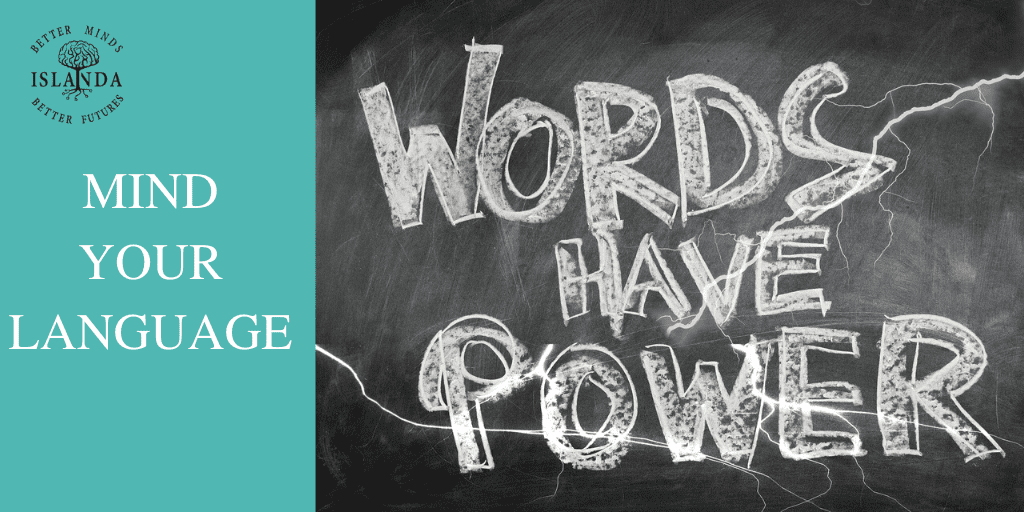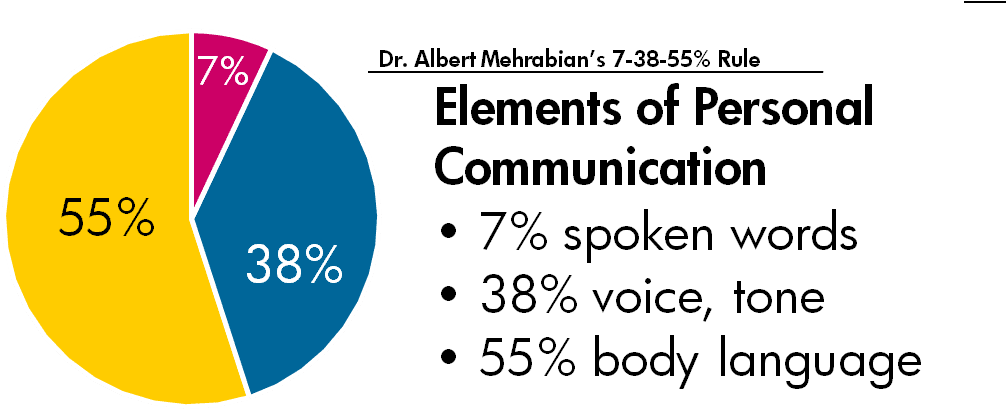“Words have magical power. They can bring either the greatest happiness or deepest despair; they can transfer knowledge from teacher to student; words enable the orator to sway his audience and dictate its decisions. Words are capable of arousing the strongest emotions and prompting all men’s actions.” Sigmund Freud
A large part of communication is linked to non-verbal communication as demonstrated by Dr Albert Mehrabian’s 7-38-55 Rule of Personal Communication:
Whilst the spoken words account for only 7%, these words can have an enormous impact on how something is said and the body language adopted when we say it. Our words have power that impacts others, but also impacts us.
Indeed, words can elicit emotional responses that the speaker, or writer, may have never intended and sometimes, words are drafted with the intent of eliciting an emotional response.
The tiniest of words can hold enormous power. Here are three of the most powerful small words:
YET – a word most recently popularised by Carol Dweck in her work on the Growth Mindset recommended to reframe how students look at failure. For example, instead of saying “I failed the Maths test”, reframe the phrase to “I haven’t passed the Maths test yet”. This simple reframe helps a student to see things less definitively and to reflect on what they need to change to succeed in the future
BUT – used inappropriately in a feedback scenario this word can undo all the positive feedback given to someone. For example, notice how you feel when you hear these two phrases “This is a great spreadsheet, BUT there are no totals for each column” versus “This is a great spreadsheet AND it would be even better if there were totals for each column”. Both sentences provide the same feedback with a different emotional response; the ‘but’ in the first sentence undermines the positive comment to focus on the lack of totals, whereas the ‘and’ in the second sentence builds on the positive comment and is more likely to motivate the receiver to want to improve on their first attempt.
WHY – as a coach I find that why is an extremely powerful word. Used positively it can help clients connect with their purpose and what’s important to them, for example “Why do you do what you do?” However, it needs to be used with caution as it can make clients feel judged. For example, if you ask someone why they didn’t do something they may respond with excuses rather than truly reflecting on the underlying reasons. If someone hasn’t done something ask “What stopped you?” rather than “Why didn’t you do it?”.
Many professionals use language more deliberately:
Coaches use language as a means of interpreting what their clients are saying as well as a tool for helping them move forward more effectively. Many coaches use well-honed methodologies that use words in a very prescriptive way such as questioning techniques, metaphors, Neuro Linguistic Programming (NLP) and Clean Language to name a few
Motivational speakers and writers are wordsmiths that use words as the raw materials to mould into something that inspires others to take action
Hypnotherapists use words in a way that enables their clients to enter a hypnotic state and once in a trance, they are able to talk to their unconscious minds to facilitate change quickly and easily
Body therapists often use Clean Language questions to facilitate communication between the body and mind. By engaging the mind in the therapeutic process it can get to the heart of the physical symptom and create somatic change to aid the healing process
Cricketers verbally intimidate (also known as sledge) the opposing player to try to weaken the opponent’s concentration, thereby causing them to make mistakes or underperform
Magicians use language to influence their audience and focus their attention on certain elements of their tricks or illusions
In these uncertain times many people are experiencing fear and anxiety, emotional states that make us more sensitive and reactive. Next time you communicate with someone and you notice that they react emotionally or defensively, reflect on what words you used – could you have elicited an unintentional response? How could you re-phrase it so it is received with the compassion and support you intended?

